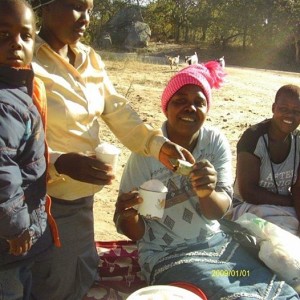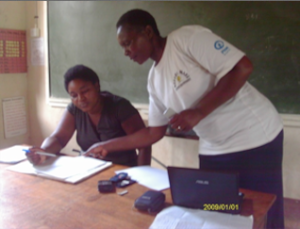SKIC has been a community-minded organization since day one. But now, more than ever, the organization is seeing the importance of maintaining and stimulating communities in both of its operating sites – Lebu, Chile and Mutare, Zimbabwe.
LEBU, CHILE | Lebu is a rather isolated city, with a static population. It relies heavily upon people-to-people connections – for it’s economy, and for morale.
Several years ago, Lebu was very much impacted by a huge earthquake. Many local institutions collapsed and the town became much more physically isolated. Lebuanos were forced to look inward and found that they could only count on their neighbors, not Santiago, Chile’s capital.
MUTARE, ZIMBABWE | Zimbabwe has been experiencing increasing economic hardship over the past 2 years, with no financial liquidity. In this economic landscape, there is a lot of room for depressed morale. SKIC’s response to this has been to downsize their SKIMFI participation, scaling from 200 beneficiaries, to 20. This scale shift has enabled SKIMFI project managers to focus their energies more specifically, and for the 20 women who are a part of the program to really band together.
SKI Charities Founder, Shyam comments on SKIMFI’s downsize, “We get obsessed in life with numbers. But it dilutes the focus and the impact. Eventually we want to reach 200 participants again, but we are really impacting people at a crucial time right now by scaling back. We are actually impacting far more people than we were before, despite numbers being lower. ”
TIRUA, CHILE: SKIC’s Latest Location | Recently, the organization extended its reach to Tirua, Chile – another relationship-oriented location.
Beneficiaries in Tirua regularly participate in group meetings to compare notes and support each other’s endeavors. Different community and government leaders conduct lectures regarding accounting, and how to set up a more formal business. These meetings give women a sense of camaraderie and the sense that there is the ability to continue their entrepreneurial pursuits outside of SKIC based on the networks they’ve created for themselves. It’s comforting for them to know that once they have completed the SKIC program, their lives can continue comfortably and that they have a set of skills and resources to keep a certain momentum behind their businesses.
Across all SKIC programs, there is little room for competition – the beneficiary experience is largely collaborative.
Community is a fundamental part of how SKIMFI participants vend their products. With a moderately stagnant economy, community becomes essential to liquidation. One of the main goals of SKIC is to foster community and collaboration between beneficiaries. Income is a short-term reward for beneficiaries, but it doesn’t match the long-term impact of building trusted networks that extend into other parts of life. “SKIC beneficiaries know they have sisters to count on when time gets tough, or even when things are going well and they have to contemplate the next step for growth,” Shyam says. “Community is everything to our organization.”




